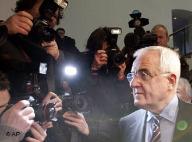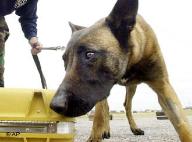Hartz Sentenced, Fined in VW Sex-and-Bribery Trial
A former senior Volkswagen manager got a suspended two-year sentence and a fine for his part in a sex-and-bribery scandal that rocked Europe's biggest carmaker.
Peter Hartz, 65, was sentenced on Thursday followed his confession earlier this month to sanctioning illegal payments in a scandal that first emerged about 18 months ago. The illegal payments were aimed at winning union support for company decisions.
In addition to the suspended sentence, the former VW manager was fined 576,000 euros ($747,000).

Hartz is known as the architect of tough labor-market reforms introduced by former Chancellor Gerhard Schroeder's Social Democrat-led government; his name is still attached to the reforms, which were partly aimed at forcing Germany's long-term unemployed to seek work.
Bribing suppliers
Hartz had expressed regret for his actions in the bribery-and-sex scandal, and has accepted "criminal responsibility" for them, his lawyer told the court at the trial in the north German city of Braunschweig.
The scandal surfaced in June, 2005. It originally centered on allegations of bribes from potential suppliers, and the creation of dummy companies that were used to secure lucrative contracts abroad.
But it quickly widened to include claims about flying around high-class prostitutes, visits to brothels, and sex parties financed with company funds.
Ties to unions
Altogether, Hartz faced 44 counts of breach of trust. He was the first person to stand trial in the case, which helped to turn the spotlight on the often cozy relations between unions and employers in corporate Germany's consensus-style management system.
Hartz admitted being the initiator of abuse that saw nearly 2 million euros in illegal bonuses paid to the then-head of the company's works council, Klaus Volkert.
The payments, made when he was director of Volkswagen's personnel department, were allegedly used to finance lavish foreign trips by Volkert and his Brazilian mistress, Adriana Barros.
Hartz left the company in July 2005. He said he ordered preferential treatment be given to Volkert because of the important role he played in the company. Under German law, works council leaders need to be consulted on major decisions taken by leading German companies.

